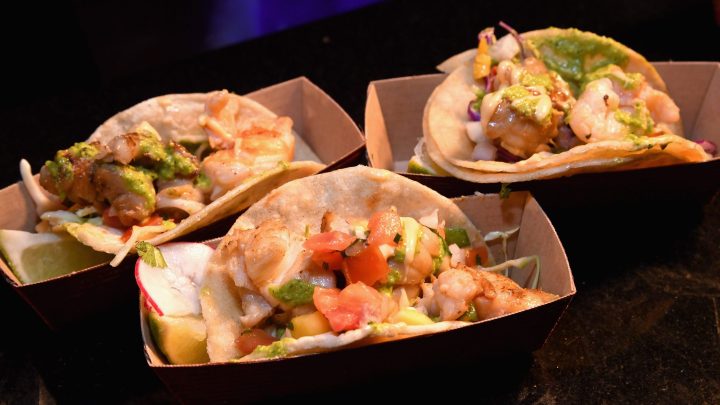
Mexican cuisine in the U.S. expands its reach and variety

Roughly 1 in 10 restaurants in the United States serves Mexican food, according to Pew Research Center. The study also found that 85% of U.S. counties have at least one Mexican restaurant.
Those restaurants are concentrated in California and Texas, which together boast about 40% of the Mexican eateries in the country.
In Houston — which happens to be the country’s second-largest hub for Mexican food — owner René Hidalgo stood behind the front counter of Tamales Don Pepe.
“I manage the place. I prepare many of the salsas, the food,” he said.
This is his second Mexican restaurant in Houston. He began as a dishwasher and has seen the landscape of Mexican cuisine evolve in the area since he moved there in the 1990s.
“Now, more people know that there’s not just Tex-Mex, but there’s so many other types of Mexican food,” he said.
Hidalgo’s menu represents the bites he grew up with in Mexico City. “Sopes, huaraches, empanadas — all those are typical from Mexico City.”
The first Tex-Mex restaurant opened in West Texas in the 1880s; the Taco Bell franchise was born in the 1960s. The Great Recession of the late 2000s was another pivotal moment, per Texas Monthly taco editor (yup, taco editor) José Ralat.
“With that economic fallout, Americans specifically were looking for affordable foods, and they homed in on tacos,” he said.
These eats are cheap — around two-thirds of Mexican restaurants on Yelp were rated one dollar sign for affordability, according to Pew Research. But these days, some folks are willing to dish out a lot more for their tacos, Ralat noted.
“Nothing stops Mexican food. Americans want it, and they demand it,” he said. “And they will find it.”
In his new “eat-ertainment” concepts, restaurateur Robert Thompson said that he’s centering Mexican food as he caters to a younger crowd.
“Mexican food is really the new American,” said Thompson. “Millennials were the first generation to prefer Mexican over Italian. Now, Gen Z has done the same.”
Members of younger generations are also more likely to be Latino. But Houston chef Adán Medrano said the expansion of Mexican cuisine goes beyond simple demographics.
“The chef-owners and writers like myself, who are Mexican American, native-born to this region, have gotten more education, more money, more access to capital,” he said.
Besides flavor, Medrano said people connect with the story of Mexican cuisine, which is embedded in North America. “The Native American roots of the Texas-Mexican food go back to the first people to step on Texas soil.”
Plus, as Mexican dining connects more deeply with its origins, he said, it’s becoming even tastier.
There’s a lot happening in the world. Through it all, Marketplace is here for you.
You rely on Marketplace to break down the world’s events and tell you how it affects you in a fact-based, approachable way. We rely on your financial support to keep making that possible.
Your donation today powers the independent journalism that you rely on. For just $5/month, you can help sustain Marketplace so we can keep reporting on the things that matter to you.











